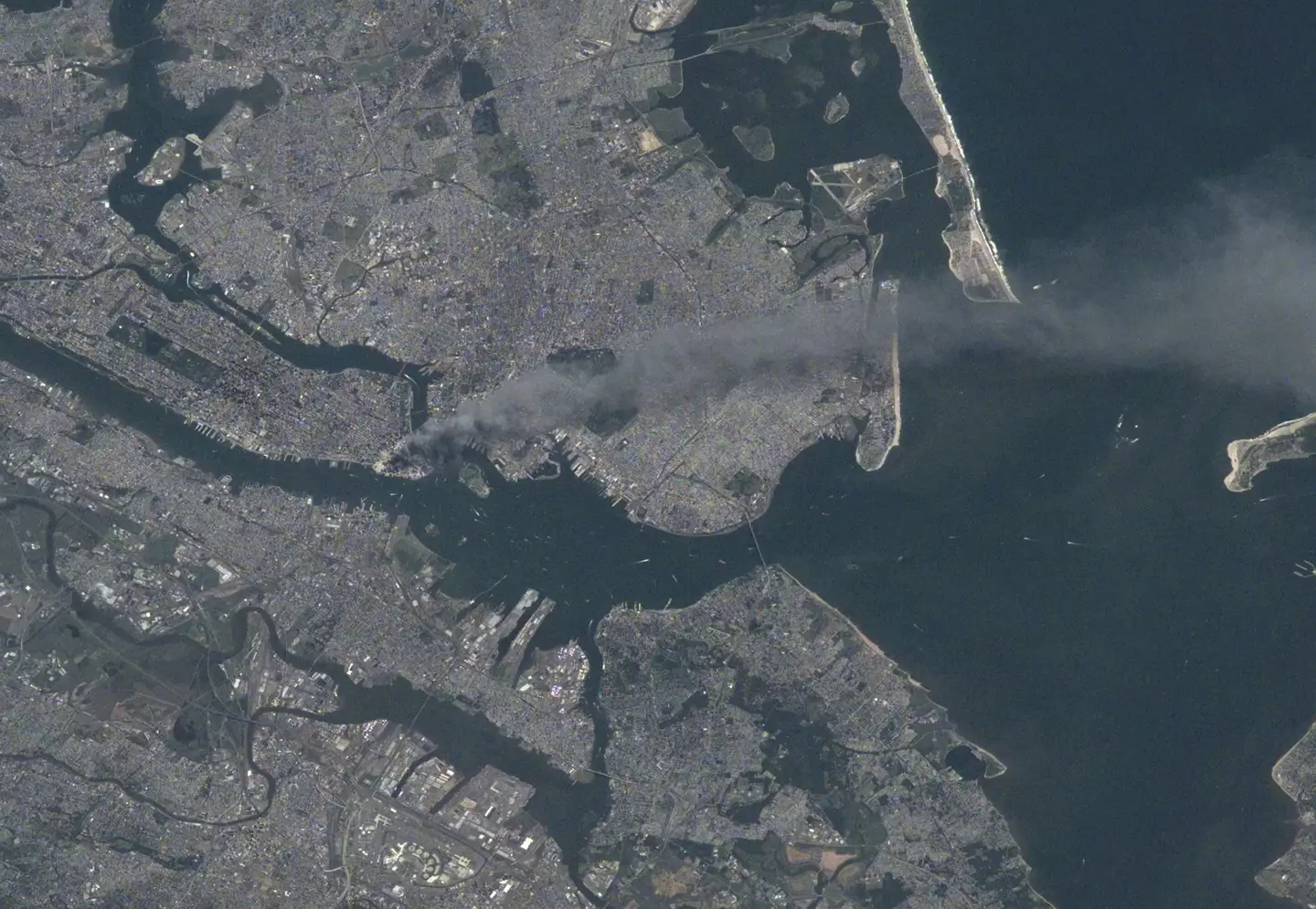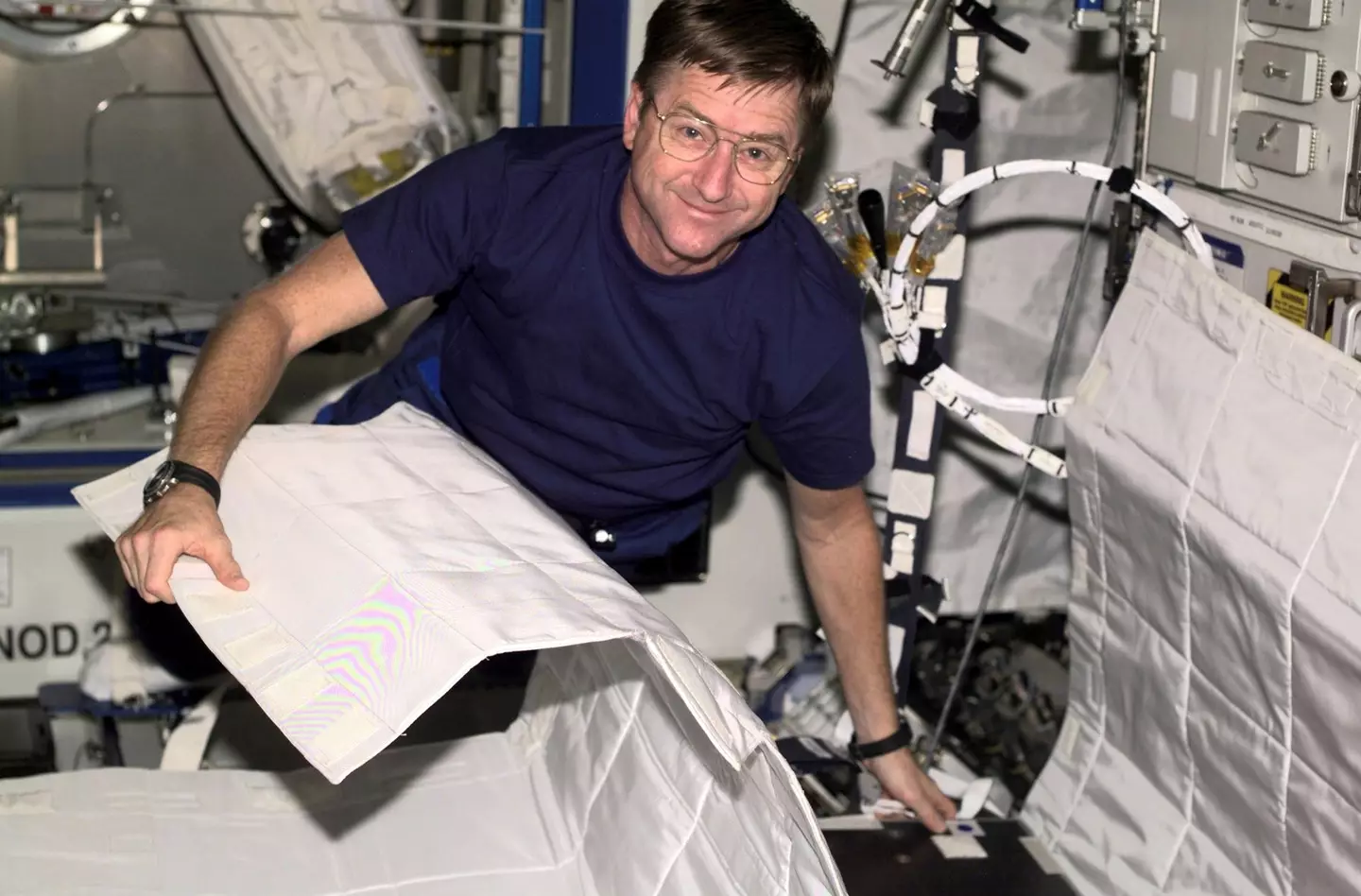NASA has shared an astronaut’s heartbreaking reaction after he was forced to witness 9/11 250 miles above the Earth’s surface.
It’s been exactly 23 years since the tragic attacks on the World Trade Centre in New York City and the Pentagon in Virginia, USA where 2,977 people died, both in the planes and on the ground, including those from emergency services.
It is the single most deadly terrorist attack in world history, as several thousands more were injured in the aftermath, but one man was left helpless and stranded, hundreds of kilometres in the sky.
American astronaut Frank Culbertson was onboard the International Space Station with two Russian cosmonauts, an estimated 250 miles (400km) from the Earth’s surface, where he was forced to watch the tragedy unfold in front of his very eyes.
He witnessed the South Tower collapse from space, after he noticed a dark gust of smoke coming from New York City, in a video that is far more chilling than any footage caught on the ground.
The astronaut previously spoke about the experience in a 2014 documentary titled Astronauts: Houston We Have a Problem, where he recalled: “I raced around and found a video camera and a window facing in the right direction.
“The weather was perfectly clear that day. I could easily see New York City – a big black column of smoke coming out of the city, and as I zoomed in with the video camera, I could see this big grey blob enveloping southern Manhattan.”
He then eerily revealed: “What we were seeing was the second tower coming down.”
However, NASA have now shared a letter from Culbertson that was written over the hours and days following the attack.
On Tuesday (10 September) this week, the space agency stated: “The following is the text of a letter from Expedition Three Commander Frank L. Culbertson (Captain, USN Retired), reflecting on the events of September 11.”
The letter looked at the astronaut’s reaction after learning about the attack and how he dealt with his emotions afterwards.

The astronaut caught a haunting sight on film (SWNS)
The 75-year-old wrote: “Well, obviously the world changed today. The flight surgeon told me they were having a very bad day on the ground. I had no idea…
“He described the situation to me as best he knew it at ~0900 CDT. I was flabbergasted, then horrified. My first thought was that this wasn’t a real conversation, that I was still listening to one of my Tom Clancy tapes.
“It just didn’t seem possible on this scale in our country. I couldn’t even imagine the particulars, even before the news of further destruction began coming in.
“I zipped around the station until I found a window that would give me a view of NYC and grabbed the nearest camera. It happened to be a video camera, and I was looking south from the window of Michael’s (Mikhail Tyurin, Russian flight engineer) cabin.”
Culbertson went on to expand on how the cloud of smoke looked from 250 miles in the sky, detailing: “The smoke seemed to have an odd bloom to it at the base of the column that was streaming south of the city.
“After reading one of the news articles we just received, I believe we were looking at NY around the time of, or shortly after, the collapse of the second tower. How horrible…
“It’s difficult to describe how it feels to be the only American completely off the planet at a time such as this. The feeling that I should be there with all of you, dealing with this, helping in some way, is overwhelming.”

The International Space Station was still under construction as he was onboard (SWNS)
The astronaut then summed up the effects that the attack would probably have: “I know that we are on the threshold (or beyond) of a terrible shift in the history of the world.
“Many things will never be the same again after September 11, 2001. Not just for the thousands and thousands of people directly affected by these horrendous acts of terrorism, but probably for all of us.
“We will find ourselves feeling differently about dozens of things, including probably space exploration, unfortunately.
“It’s horrible to see smoke pouring from wounds in your own country from such a fantastic vantage point.
“Other than the emotional impact of our country being attacked and thousands of our citizens and maybe some friends being killed, the most overwhelming feeling being where I am is one of isolation.”
Culbertson also later found out that the plane that struck the Pentagon was originally piloted by his Naval Academy classmate Charles Burlingame, and performed an emotional rendition of ‘Taps’, a bugle call that signals ‘lights out’ at the end of a military day, during memorial ceremonies, or during military funerals.